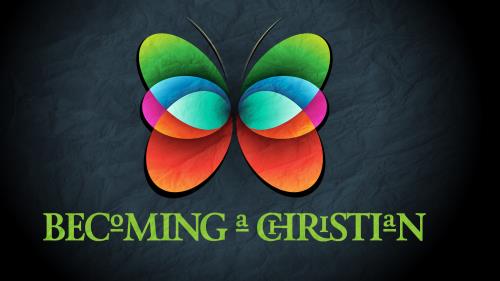-
Nothing But The Blood Series
Contributed by John Hamby on Nov 28, 2017 (message contributor)
Summary: # 15 in a series on Hebrews. This text gives the only effective redemy for sin.
A Study of the Book of Hebrews
Jesus is Better
Sermon # 15
“Nothing But the Blood”
Hebrews 9:12-28
Hebrews 9:22 states, “And according to the law almost all things are purified with blood, and without shedding of blood there is no remission.”
“Today many look with revulsion on the shedding of blood that formed such an essential feature of the Old Testament religion. They consider with equal horror the New Testament’s teaching concerning Christ’s blood. They shudder with abhorrence at many of the gospel hymns that emphasize the efficacy of the blood of Christ. Those who thus scorn the shed blood have their eyes blinded both to God’s blazing holiness and to the dreadful, …nature of sin. Sin is a radical and terrible reality that calls for a radical and terrible cure.” [John Philips. Exploring Hebrews. (Neptune, NJ: Loizeaux Brothers, 1992) p. 118]
The world may not like to think or hear about blood, but the writer of Hebrews tells us that it is only the blood of Christ that can cleanse us from our sins.
Kent Hughes maintains that, “During the thousand plus years of the Old Covenant, there were more than a million animal sacrifices. So considering that each bull spilled a gallon or two of blood and each goat a quart, the Old Covenant truly rested on a sea of blood.” [R. Kent Hughes. Hebrews: An Anchor For the Soul. Vol 1 (Wheaton: Crossway Books, 1993) pp. 233-234]
Yet as we learned last time in chapter eight, none of those thousands of animal sacrifices ever really gained forgiveness for sins. The sacrifices of the Old Testament could temporarily cover sins but they looked forward to a future fulfillment. For the sins to be forgiven there needed to be a new covenant relationship that fulfilled what was foreshadowed and promised by the Old Covenant.
We are given in these verses the only effective remedy for sin.
First, It Is A Remedy Effecting The Conscience. (vv. 11-14). “Not with the blood of goats and calves, but with His own blood He entered the Most Holy Place once for all, having obtained eternal redemption. (13) For if the blood of bulls and goats and the ashes of a heifer, sprinkling the unclean, sanctifies for the purifying of the flesh, (14) how much more shall the blood of Christ, who through the eternal Spirit offered Himself without spot to God, cleanse your conscience from dead works to serve the living God?”
The blood of animals was able to purify the flesh of an unclean person. But the blood of Christ is able to purge the conscience from dead works (i.e., sin) to serve the living God. The animal sacrifices could not do this. For the daily and annual sacrifices constantly reminded them of sin (Heb 10:3). Therefore Christ not only removes the "legal" guilt of sin, but also the "inward" (or emotional) guilt of sin!
It Is A Remedy Effecting The Conscience and …
Secondly, It Is A Remedy Offering Forgiveness. (vv. 15-22)
Verse fifteen says “And for this reason He is the Mediator of the new covenant, by means of death, for the redemption of the transgressions under the first covenant, that those who are called may receive the promise of the eternal inheritance.”
The word that is twice translated in verse fifteen as “covenant” (diatheke) is also used twice in verses sixteen and seventeen, but there it is translated “testament.” It is actually the same word in all four locations and the reason for the two different translations are that in verse fifteen the word is used religiously (hence covenant) and legally in verse sixteen and seventeen and thus translated “testament” or “will.”
Two important truths
• A Will Demands A Death (vv. 16-17)
“For where there is a testament, there must also of necessity be the death of the testator. (17) For a testament is in force after men are dead, since it has no power at all while the testator lives.”
“Testament” could be translated will. If you have made a will and you are still alive, your will does nothing for anyone. It doesn’t operate until you die. Now the reference here is to a will that was made by a man who died. He couldn’t save anyone as long as He lived. It is not the life of Christ as exemplary as it was that saves – it is the death of Christ which saves you.
• Forgiveness Demands Blood (vv. 18-22)
“Therefore not even the first covenant was dedicated without blood. (19) For when Moses had spoken every precept to all the people according to the law, he took the blood of calves and goats, with water, scarlet wool, and hyssop, and sprinkled both the book itself and all the people, (20) saying, “This is the blood of the covenant which God has commanded you.” (21) Then likewise he sprinkled with blood both the tabernacle and all the vessels of the ministry.”

 Sermon Central
Sermon Central



